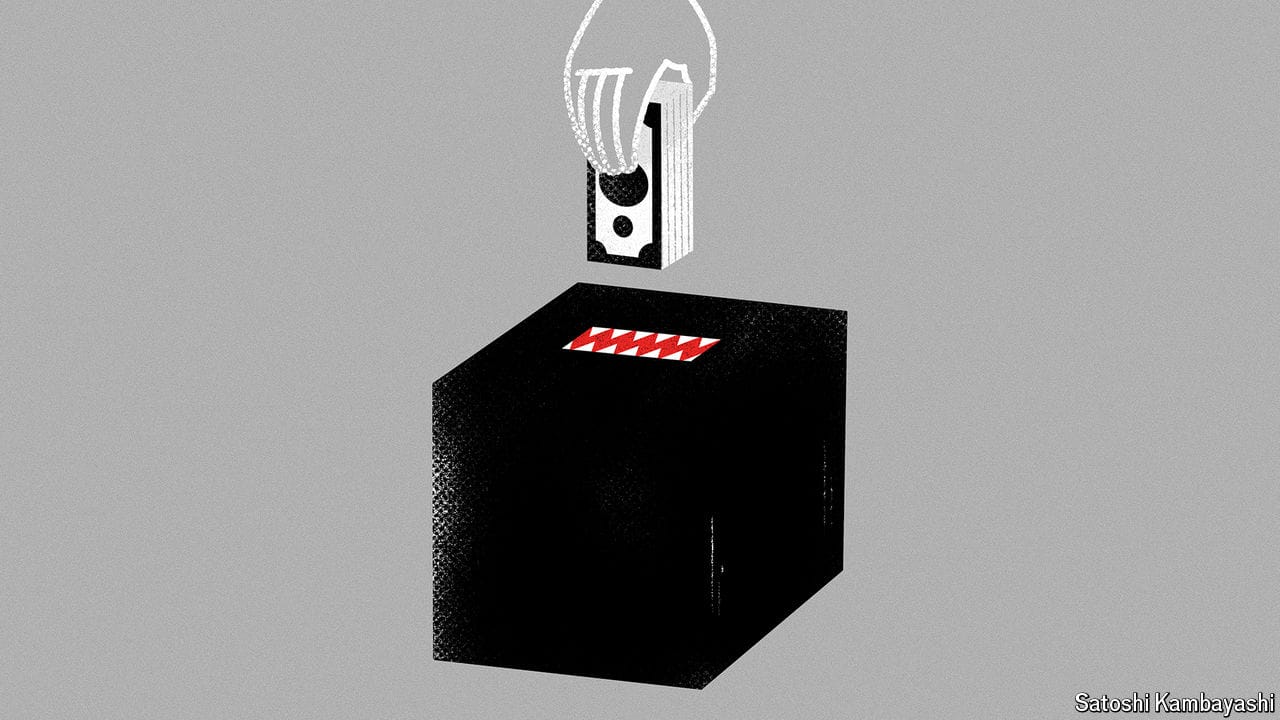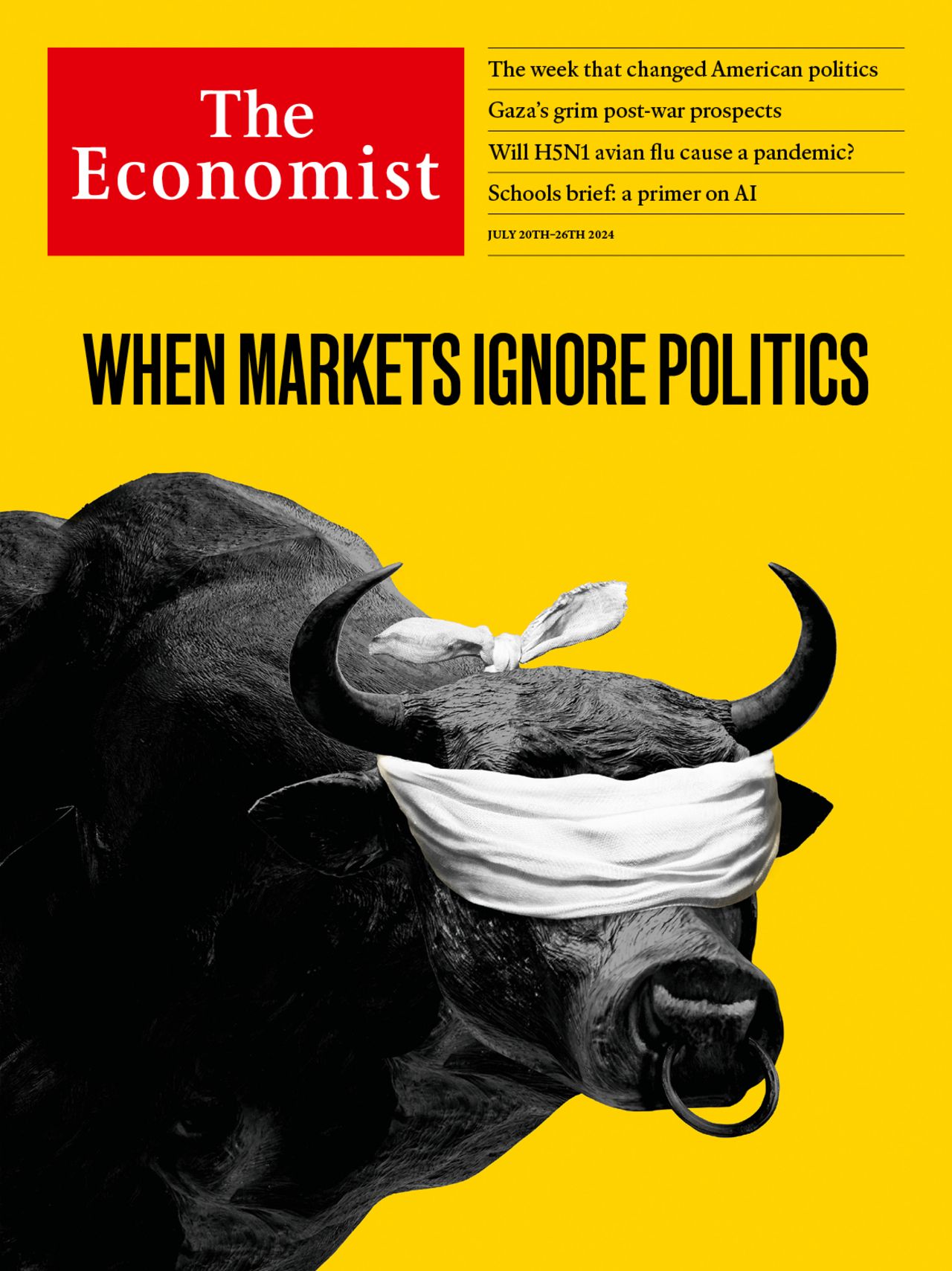At last, Wall Street has something to cheer
Consumer banks, on the other hand, are starting to suffer

Capital markets are twitchy. When interest rates spiked in 2022, their response was fast. Stocks plunged; bosses deferred plans to go public, issue stock and buy rivals. Sharp-suited bankers suddenly found their calls going unanswered. By contrast, the economy adapts slowly. As inflation climbed, people did not cut back much on spending, instead using their credit cards more. With the labour market healthy, they did not struggle to repay debt as rates rose. The result was a bonanza for consumer banks. They raked in ever more interest from resilient borrowers as defaults and delinquencies stayed low.
Explore more
This article appeared in the Finance & economics section of the print edition under the headline “Main street sags”
Finance & economics July 20th 2024
- Stocks are on an astonishing run. Yet threats lurk
- Why investors have fallen in love with small American firms
- At last, Wall Street has something to cheer
- Japan’s strength produces a weak yen
- China’s leaders face miserable economic-growth figures
- YIMBY cities show how to build homes and contain rents
- Americans are wrong to wish for an era of stable bipartisanship
More from Finance and economics

China’s last boomtowns show rapid growth is still possible
All it takes is for the state to work with the market

What the war on tourism gets wrong
Visitors are a boon, if managed wisely

Why investors are unwise to bet on elections
Turning a profit from political news is a lot harder than it looks
Revisiting the work of Donald Harris, father of Kamala
The combative Marxist economist focused on questions related to growth
Donald Trump wants a weaker dollar. What are his options?
All come with their own drawbacks
Why is Xi Jinping building secret commodity stockpiles?
Vast new holdings of grain, natural gas and oil suggest trouble ahead
